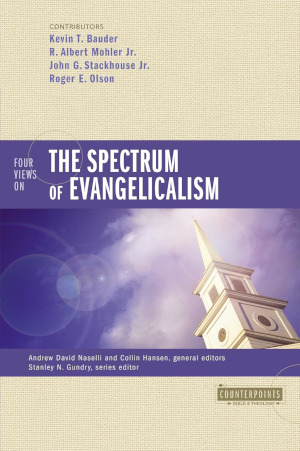Against "Secondary Separation"
In 1974, the evangelist John R. Rice wrote a book on separation entitled Come Out or Stay In. Most Baptist fundamentalists are familiar with Ernest Pickering’s book on the same subject, but few are aware that Rice contributed to the discussion.
Discussion
Grace Toward the Godly of the Past — Aphorisms for Thinking About Separation
 Aphorism 7: Our patterns of application of separation today must include the grace we allow the godly of the past.
Aphorism 7: Our patterns of application of separation today must include the grace we allow the godly of the past.
Discussion
Separation: Can We Have a Better Debate?
The biblical doctrine of separation is difficult to discuss. I’ve read, listened to, and participated in quite a few exchanges over the years. More often than not, no movement toward consensus, or even increase in clarity, seemed to result. It’s not unusual for a discussion on the topic to end with—apparently—less mutual understanding than existed at the start, despite the fact that everybody involved seems to genuinely desire to know, live, and teach what the Scriptures require of us. (By the way, long before Internet, this sort of back and forth was going on in magazines, newsletters and pamphlets. It just moved slower in those days.)
So why is the topic so messy?
I don’t fully understand why clarity about separation is so elusive. I do continue to believe, though, that there is ultimately no reason why the various perspectives on the subject can’t be clearly distinguished from one another in accurate and mutually-accepted terms. In other words, though we’re unlikely to ever see complete agreement between conservative evangelicals, 20th century-style movement-fundamentalists, and all the miscellaneous-other among us, it really is possible to reach a point where the differences among us are clear, well understood, and debated mostly on-point—to the benefit of all who seek to know and obey the truth.
Discussion
Secondary Separation: Should Christian Brethren Ever Separate? (Part 2)
 Read Part 1.
Read Part 1.
Is there such thing as “secondary separation?”
There is a remarkable consensus that the phrase “secondary separation” is unbiblical. Moritz maintains the grounds of any separation are principles based upon the holiness of God (72). McCune likewise repudiates the concept of “degrees” of separation (147). Charles Woodbridge was particularly offended by the term; he called any distinction of degrees of separation a “deadly menace.” To him, separation extended to any relationship in which disobedience to God is involved (10).
The Bible knows nothing whatever about “degrees” of separation from evil! The Christian is to remove himself as far as it is humanly possible from all forms of evil, whether they be peripheral, pivotal or relatively ancillary. To hate evil means to hate it in all its forms—its ancestry, its immediate presence and its progeny! (11)
Discussion
Secondary Separation: Should Christian Brethren Ever Separate?
 The concept and practice of so-called “secondary separation” is a divisive issue within fundamentalism. It is appropriate now, more than ever, to examine the matter in light of Scripture. What follows is an all-too brief survey of several respected fundamentalist leaders of the past 50 years on this very matter. Their views are briefly presented and analyzed, and some conclusions will be drawn at the end. Hopefully, this modest study will edify the body and exhort fundamentalists to be captive to the Scriptures, wherever they may lead.
The concept and practice of so-called “secondary separation” is a divisive issue within fundamentalism. It is appropriate now, more than ever, to examine the matter in light of Scripture. What follows is an all-too brief survey of several respected fundamentalist leaders of the past 50 years on this very matter. Their views are briefly presented and analyzed, and some conclusions will be drawn at the end. Hopefully, this modest study will edify the body and exhort fundamentalists to be captive to the Scriptures, wherever they may lead.
At the outset, a brief definition of fellowship must be offered so we’re all on the same page going forward. Loosely, “fellowship” is defined as a union for spiritual purposes. More precisely, a partnering of individuals, churches, organizations or any other group for the purpose of promoting Biblical truth, based on a common spiritual foundation. Therefore, when we discuss a separation among brethren, we are really pondering the question, “With whom or what can I legitimately enter into a spiritual partnership with?” (Oats).
Discussion
Evangelical Spectrum: Four Views or Two Views?

Purchases help fund SI.
Just when readers think that the evangelical “four views” genre has covered every possible angle, editors Andy Naselli and Collin Hansen have come up with a book that explores evangelicalism itself. Zondervan’s Four Views on the Spectrum of Evangelicalism succeeds in presenting four engaging essays that describe the range of positions within evangelical thought. But the book leaves readers with a question. Are there really four views, or can they be boiled down to two?
More specifically, are we headed toward a convergence between mainstream fundamentalists and conservative evangelicals?
Sorting out the positions
Kevin Bauder presents mainstream fundamentalism as an idea worth saving, but not a movement worth saving. While many readers within fundamentalism are familiar with his views, the other three authors seemed somewhat surprised by his measured tone and his willingness to critique his own movement. Bauder contrasts his position with hyper-fundamentalism and populist revivalism, which he identifies as “deficient forms of the movement.” Bauder even worries that these two forces are now more prevalent in fundamentalism, with his own position losing influence. But for those who think that mainstream fundamentalism is identical to conservative evangelicalism, Bauder clearly states that it is not. For Bauder, there are still doctrinal differences related to the definition of the gospel, and practical differences related to separation. (Kevin Bauder’s chapter is excerpted as “Defending the Idea of Fundamentalism” in the November/December Baptist Bulletin.)
Al Mohler chose the term confessional evangelicalism to describe his own position in order to emphasize evangelicalism’s doctrinal center. He could have chosen the more popular title “conservative evangelicalism” (and in conversation he acknowledges they refer to the same movement), but the word “conservative” carries its own political baggage. Unlike the two authors who follow him in the book, Mohler wants an evangelicalism with clear, gospel-defined boundaries. His “first level theological issues” sound a lot like “fundamentals,” which he confirmed to me in a later Baptist Bulletin interview. For that matter, Kevin Bauder also affirms that they are talking about the same essential doctrines. But the difference between their two positions remains a matter of discussion.




Discussion